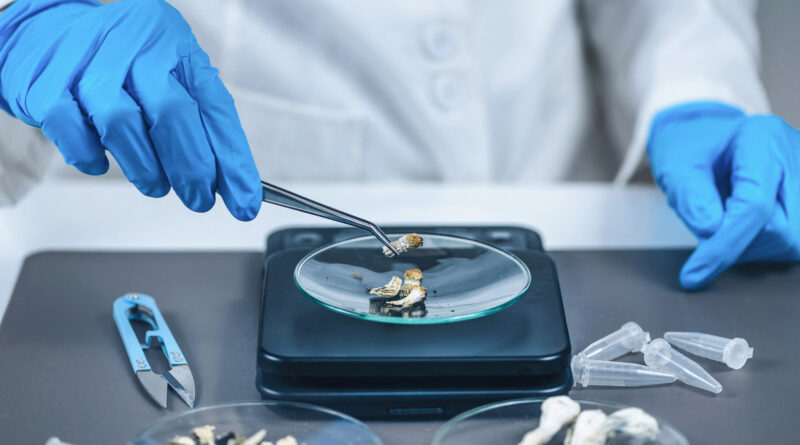Is motivational therapy about to become mainstream?
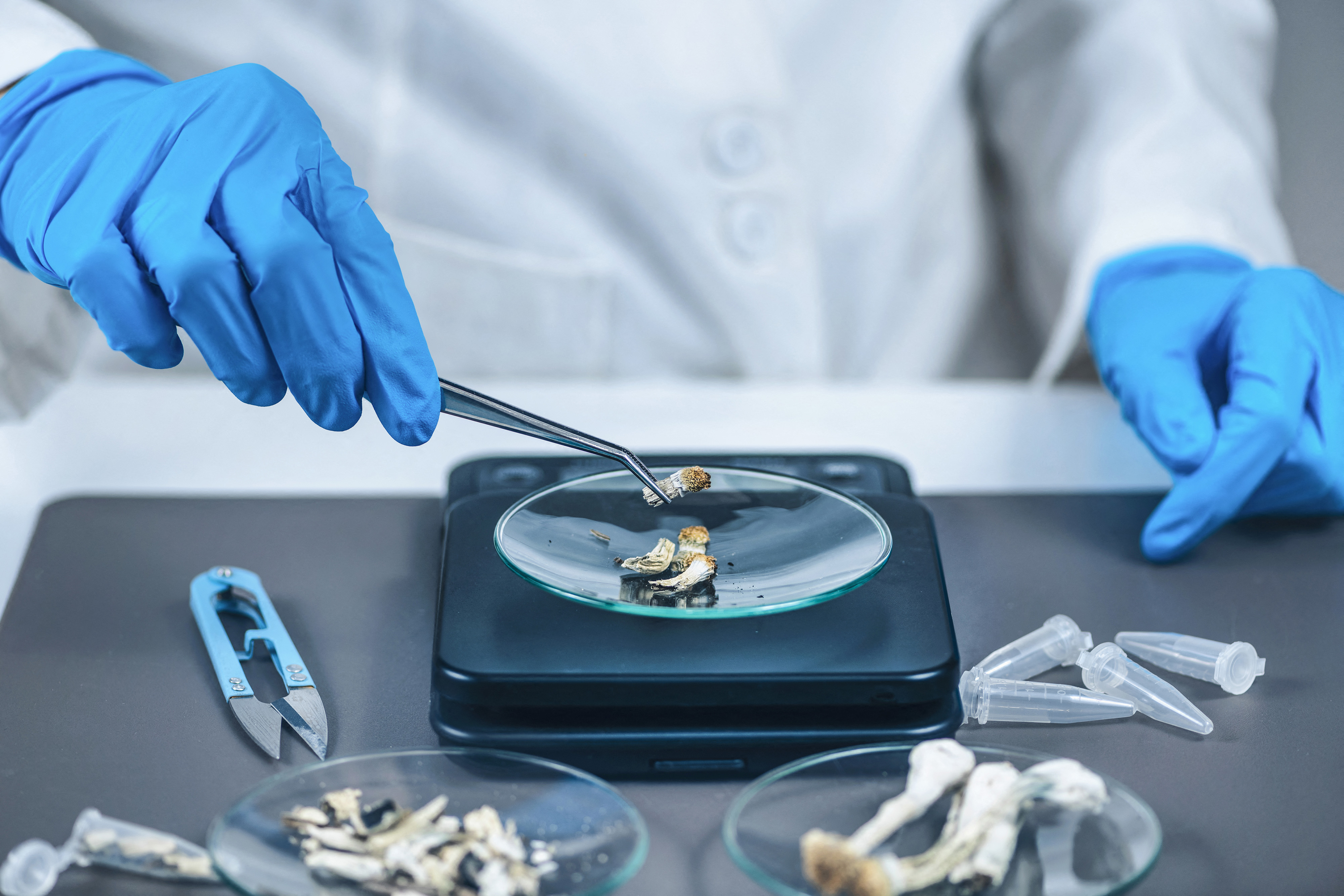
The compound psilocybin, found in the mushroom, is used in Geneva hospitals to treat depression and PTSD.
Microgen Images / Science Photo Library
Geneva is home to the only Swiss hospital that offers assisted living. Despite the hype, Fully legalizing the treatment is still a long way off.
The Netflix documentary inspired François, a 52-year-old policeman and father of four, to try psychotherapy. Along with another volunteer, a 70-year-old woman, he took a few micrograms of the stimulant LSD.
The patients of Prof. Daniele Zullino, head of motivation-assisted therapy at the University Hospital of Geneva (HUG), do not associate typical patterns with medication. Most of them had never seen ecstasy before being handed a capsule of mushroom-derived psilocybin or a vial of LSD in a doctor’s office. For a price of CHF199 to CHF445 ($221 to $494), depending on the volume, volunteers embark on the “journey” for up to 12 hours. François’ goal: to cure his decades-long depression.
Health insurance doesn’t cover the cost of those drugs, but the potential benefits make them worth the price, François said. “If you don’t have to buy more antidepressants, the math is easy.” François had three exciting experiences in the past year. The results so far have been impressive. “All the symptoms of depression are gone,” he said. “I have a new taste for life.”
Want to read our weekly top stories? Sign up. Here.
until 2024; Psychedelics are legal or decriminalized in 23 countries. Switzerland has a long history since LSD was discovered in Basel in 1938. US Along with Canada and Australia, the country is a world leader in psychedelic therapy and research. Since 2014, Swiss patients have been able to access psychedelics for compassionate use in hospices. So far, HUG is the only place in the country that offers safe psychological treatment in a large clinical environment.
“Patients come from all over Switzerland to be treated here,” says Zullino. If research is one of the goals of providing treatment, therapy is the primary goal. “We are the first in the world to legalize psychological treatment outside of research procedures,” he told SWI swissinfo.ch. Since 2019, Zullino and his team have treated 200 patients, a record in the field.
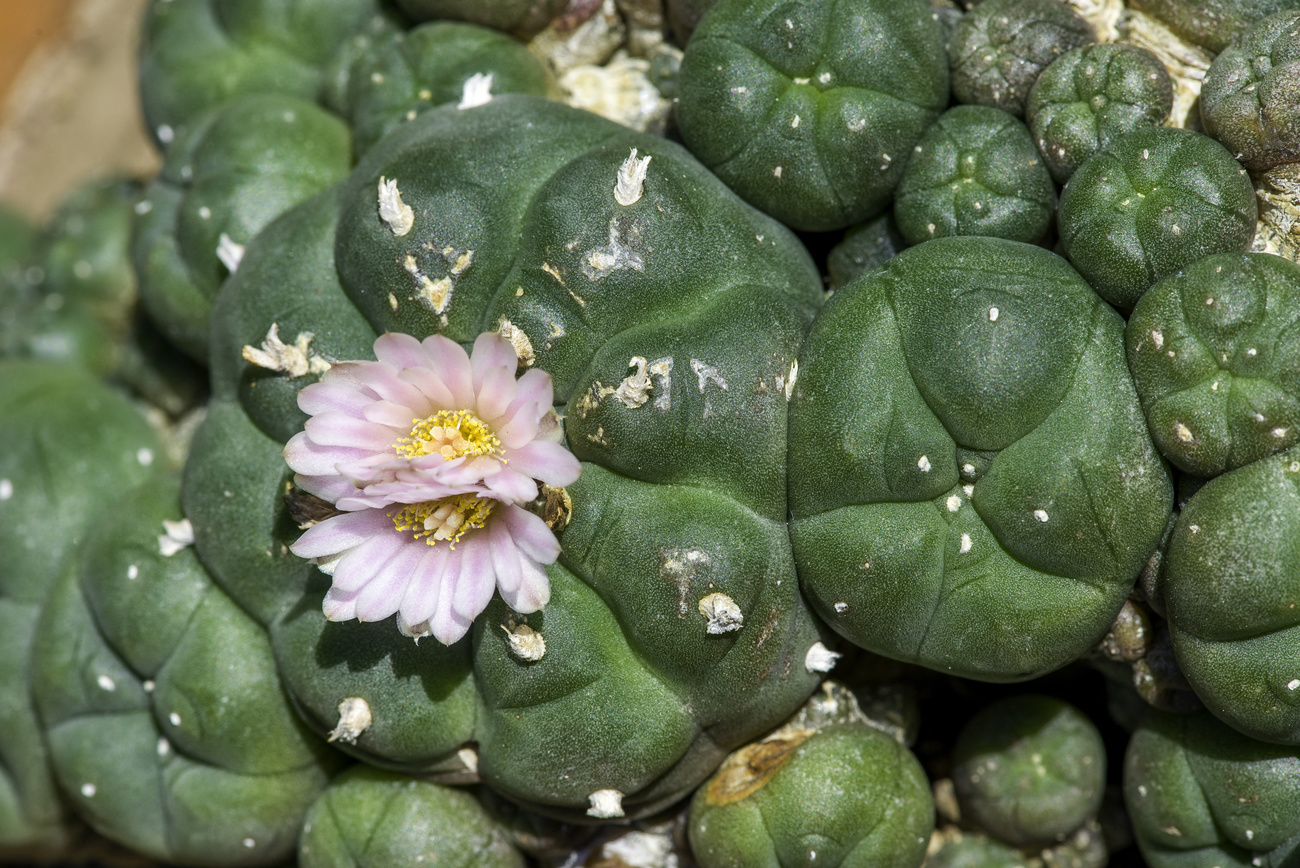
Peyote (Lophophora williamsii) is a small, spineless cactus that contains psychoactive alkaloids; Especially mescaline. It is native to Mexico and southwestern Texas.
Stuart Wilson / Biosphoto
Success stories
Zullino has often seen success stories like François’s in patients who didn’t respond to conventional therapy. “Mental diseases are caused by a tight connection of the nerves. It makes it difficult for those affected to change their outlook on life,” Zullino explained. “If you’re depressed, you can’t see the positive side.”
Psychedelics are a subgroup of psychoactive drugs, mood, Perceptions and perceptions can be changed. By doing so, they build new connections in the brain. LSD and psilocybin – the alternatives proposed by HUG – are the most well-known forms. Other stimulants include DMT, mescaline including MDMA and ketamine. All of these materials are used in clinical trials in Switzerland and around the world.
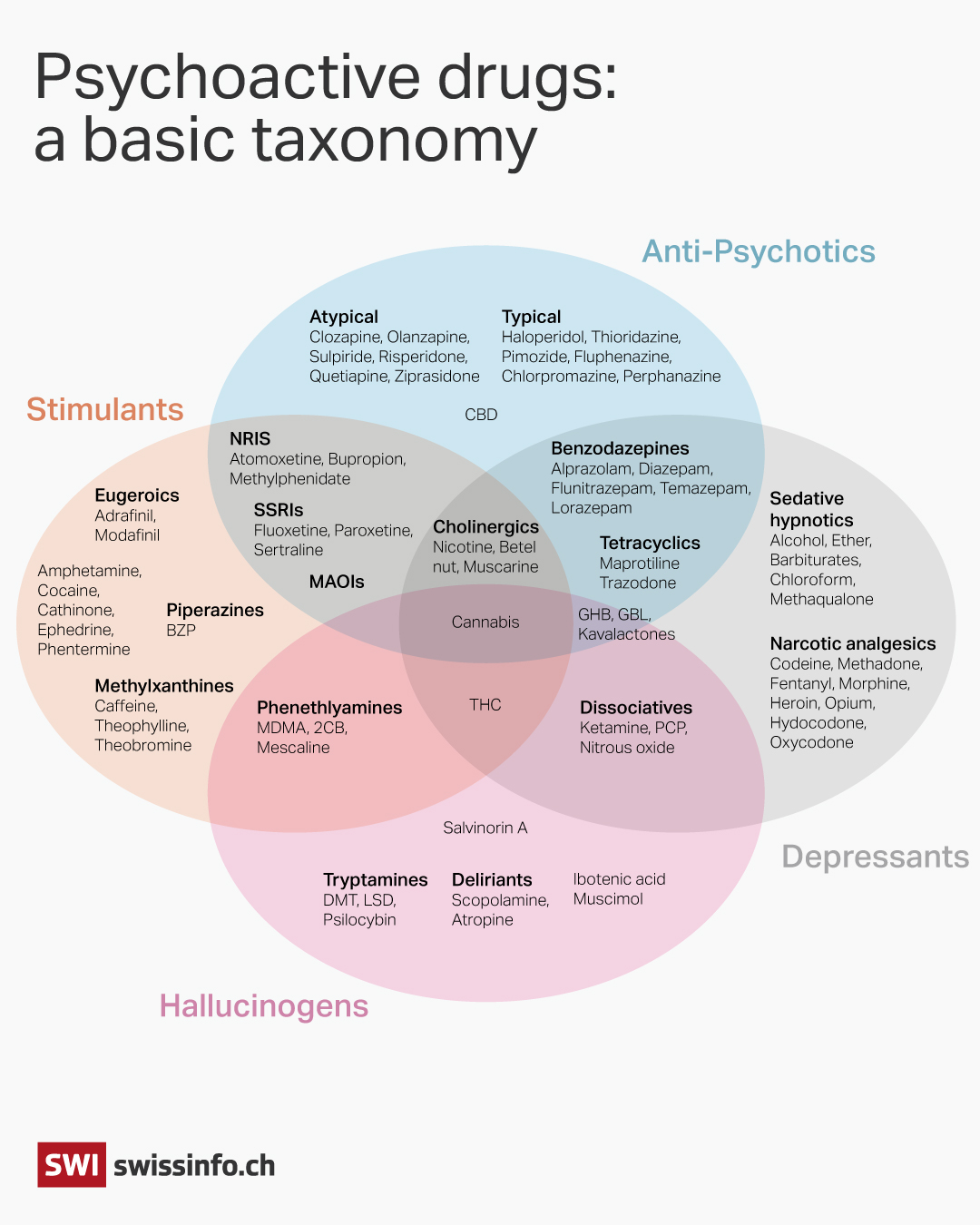
Kai Reusser / swissinfo.ch
But medication alone doesn’t explain the mental breakdown many patients experience.
“Enthusiasts prepare the ground for new beliefs discovered in therapy,” says Zullino. Because at HUG, The hours spent under the influence of the drug were framed with psychotherapy sessions to “purpose the journey” and “integrate the experience”. This emotional support is critical to the healing process.
Expert disagreement
In the world of psychiatry, there haven’t been any of the breakthrough drug discoveries since antidepressants in the 1950s. Psychologists were shocked. With no risk of addiction and minimal side effects, Antipsychotics appear to be more effective than currently marketed antipsychotics, at least when administered in the right setting.
This is central to Laura Tocmacov, co-founder of the patient association Psychédelos in Geneva. “Approximately one-third of patients who come to the club after receiving motivational support therapy have not experienced a therapeutic effect or even a fresh injury,” she said.
For former patient Tocmacov, It’s not because of the drugs as such, but because of the conditions under which they took them. “Some patients are left alone on terrible journeys, which causes a lot of anxiety,” she said. “Others were treated by an unqualified therapist who failed to create a safe atmosphere.”
The question of the right environment for the experience of passion divides specialists. For Tocmacov, Every therapist should try psychedelics before administering them. For Zullino, This is not necessary. “Does a gynecologist need to be a woman?” he asked.
Tocmacov asserts that newly trained “spiritual” therapists should learn from the experiences of shamans or underground healers. “Their traditions tell us that when it happens in natural or spiritual connections, it enhances the experience of passion,” she notes. “On the other hand, A white room in a clinic can create anxiety for some patients.”
On the contrary, Zullino believes that spiritual elements add nothing. “We’re trying to use neutral rooms where patients can project their views instead of having their views imposed on them,” he said.
Scientific research on the subject is still in its infancy. Strict protocols require doctors, Every interaction between the patient and the environment has framed most psychological studies conducted to date. This framework is intended to allow scientists to compare the effect of a drug to the effect of a placebo rather than evaluating it in different settings.
HUG doctors are not bound by these research protocols, as their research focuses on how to optimize therapy, which frames the use of psychedelics rather than pharmacology. “We experiment with new music; asking patients different questions; You can explore what works best with changing the environment or dosage of the drug,” Zullino says. The knowledge developed by him and his team can serve as the basis for training standards in Switzerland. It is the new therapies that can offer their patients an inspiring treatment.
Authorization Road
Currently, adult Swiss citizens who want to try mood-assisted therapy have to prove several things to the Federal Public Health (FOPH): that they suffer from a treatment-resistant disease; Many drugs and therapies have been tried with no improvement. Their illness is significant, long-lasting, anxiety, leading to depression or addiction.
The limited scope of his qualifications for therapy has at the same time allowed an unregulated underground world of options to blossom. If caught, Illegal zealots generally risk nothing more than a fine.
Maxime Mellina works for the Groupement Romand d’Etudes des Addictions, a citizens’ association in French-speaking Switzerland that deals with addiction-related public policies. “By allowing substances only in strict medical settings, we exclude all those who do not have a serious mental illness, but who are motivated to try it for personal improvement, forcing them to turn to illegal and uncontrolled offerings,” he argues.
At the same time, there were significant global movements calling for changes in the regulatory status of psychedelics.
Such debates may soon lead to the medical benefits of psychedelics in Switzerland. From being used only as an exception in resorts of last resort, drugs are becoming more generally used in treatments, leading to a need for experienced therapists. “This change should start in two years,” Zullino observed.
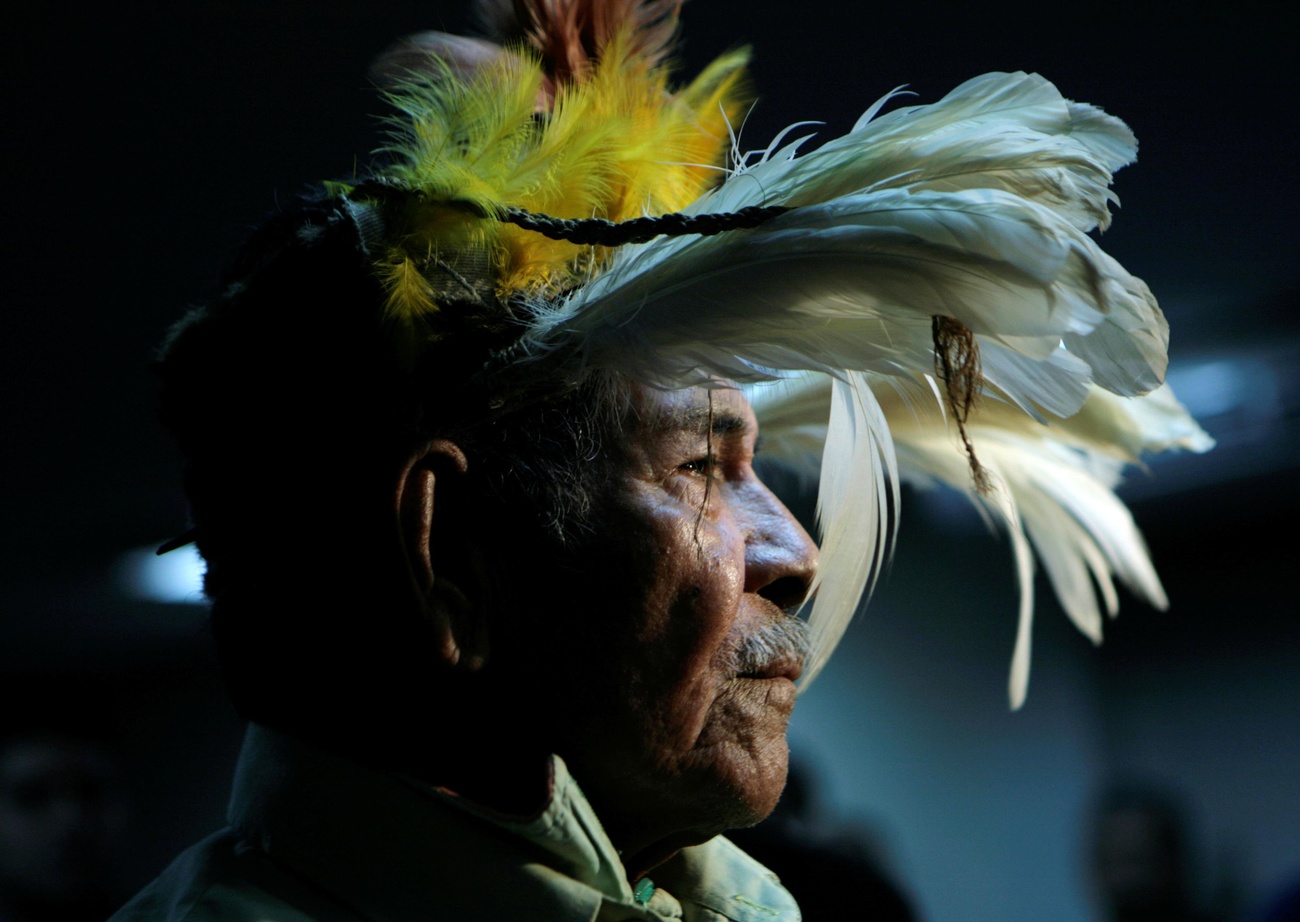
During a ceremony, shaman Margarita Mbywangui (unseen), a native of the Aché tribe in Paraguay, performs a purification ritual.
Jorge Saenz/AP/Keystone
Mellina believes there is no reason to ban mania altogether. “They do not represent an addiction risk and do not lead to problematic behaviors such as alcohol,” he said. The question is correct. how’s it going “Should everyone have it like a glass of wine? Or at the pharmacy?” he asked.
Zullino was a strong advocate for mind control as medicine. As for other uses, he insists that is a completely different issue. Confusion between drugs and medications “undermines scientists’ efforts to ensure better access to much-needed treatment,” he said. But distinguishing between medical use and the rest is not an easy matter. “Where does therapy begin and end?” asked Melina. “If you drink a glass of wine after work, is this recreational or therapeutic?”
This year may mark a turning point for bipolar disorder legislation worldwide, as the US Food and Drug Administration (FDA) agreed to review MDMA-assisted therapy for post-traumatic stress disorder. If it approves the remedy. This can significantly influence the regulatory process in other countries and lead to quick or easy reviews. In Switzerland, where Albert Hofmann first developed LSD in 1938, psychedelics would be widely available within five years, says Mellina.
Edited by Virginie Mangin/dos.
#motivational #therapy #mainstream
